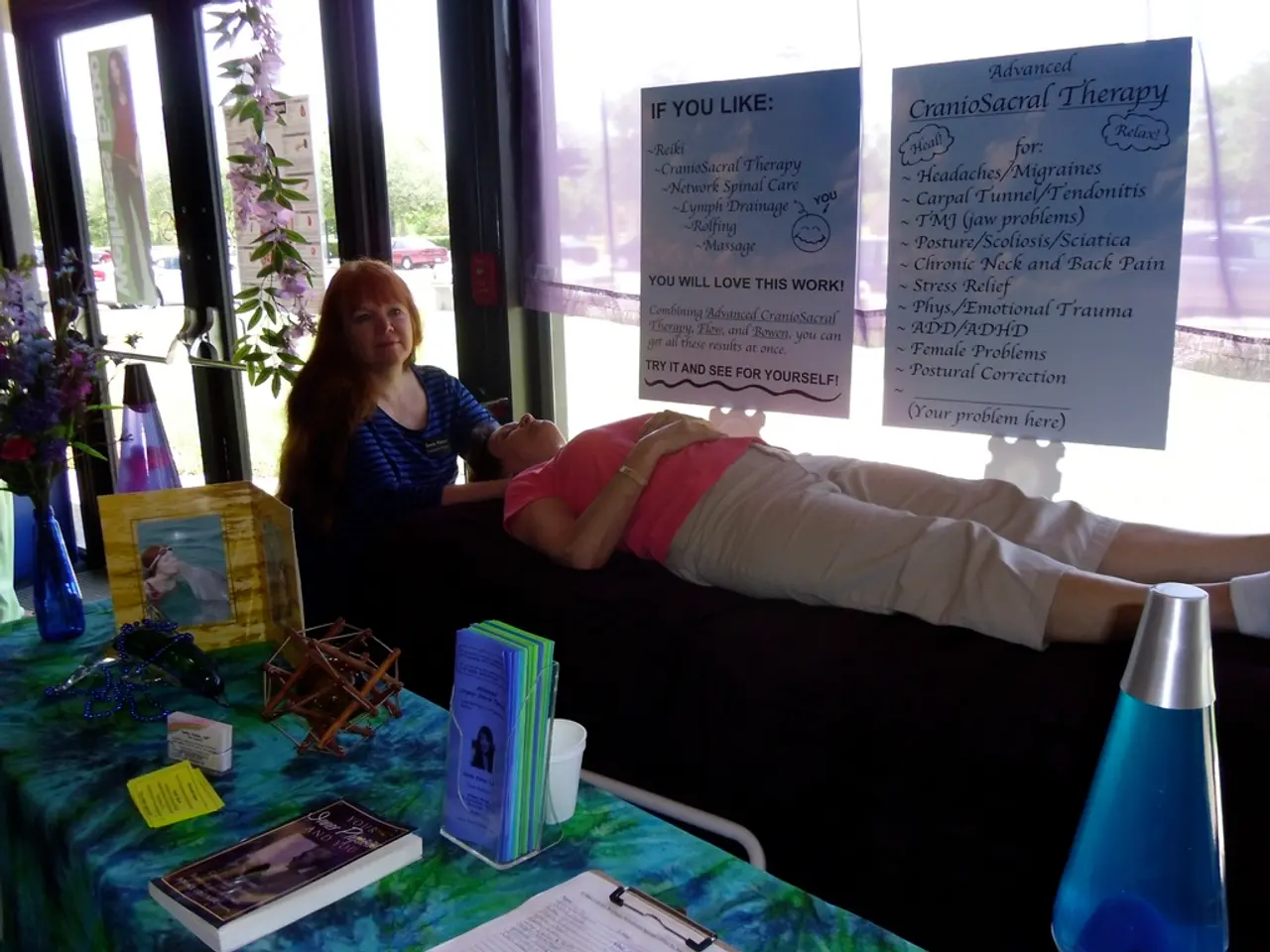Daily Life Strategies for Coping with Generalized Anxiety Disorder (GAD)
Living with Generalized Anxiety Disorder (GAD) can be challenging, but there's hope. Practical strategies for long-term management of GAD involve a combination of lifestyle modifications, therapy, and online resources.
Lifestyle Modifications
Adopting a healthy lifestyle can significantly improve the management of GAD. Regular exercise, for instance, boosts mood-enhancing brain chemicals and reduces anxiety symptoms. A balanced diet, rich in fruits, vegetables, and omega-3 fatty acids, supports brain health. Adequate sleep is crucial for mood regulation and reducing irritability.
Stress management techniques, such as mindfulness, meditation, grounding exercises, and deep breathing, help manage acute anxiety. Time management skills, learning to manage time and energy, can reduce stress and anxiety triggers. Socializing, maintaining social connections, offers emotional support and reduces isolation. Journaling, tracking triggers and progress, helps identify calming strategies.
Therapy
Cognitive Behavioral Therapy (CBT) is considered the gold standard for managing GAD. It helps identify and challenge negative thought patterns, develop balanced thinking, learn coping skills, and practice exposure to feared situations. Acceptance and Commitment Therapy (ACT) focuses on acceptance of anxious thoughts, psychological flexibility, and living meaningfully despite worry. Mindfulness-Based Stress Reduction improves present-moment awareness and reduces anxiety symptoms.
Engagement and consistency in therapy sessions and homework are essential for success.
Online Resources and Support
Online therapy platforms, such as BetterHelp, provide access to licensed therapists remotely through video, phone, or chat, making therapy more flexible and accessible while being as effective as in-person treatment. Online memberships can include guided journaling, group therapy, and digital worksheets tailored for anxiety management.
Support groups, such as those offered by the Anxiety and Depression Association of America or National Alliance on Mental Illness, provide community understanding and shared experience, reducing feelings of isolation.
Combining these approaches often strengthens management outcomes, especially when therapy is supported by healthy lifestyle habits and continuous self-monitoring or journaling. Engaging healthcare providers to create a personalized care plan that may also include medication is advisable for comprehensive long-term management.
Remember, long-term management of GAD requires habits such as exercise, social interaction, healthy eating, and continued therapy for maintaining a healthy mind-body connection. Sharing symptoms and coping strategies with close family or friends can provide support during anxious moments. Participating in online communities or reading resources about GAD can offer a sense of understanding and connection.
If you suspect you may have GAD, don't hesitate to contact health care professionals for an evaluation. It's a step towards taking care of your mental health and starting a better tomorrow.
[1] American Psychiatric Association. (2013). Diagnostic and Statistical Manual of Mental Disorders (5th ed.). Arlington, VA: American Psychiatric Publishing. [2] National Institute of Mental Health. (2020). Generalized Anxiety Disorder. Retrieved from https://www.nimh.nih.gov/health/topics/anxiety-disorders/generalized-anxiety-disorder-gad/index.shtml [3] National Institute for Health and Care Excellence. (2011). Generalised anxiety disorder and panic disorder in adults: management. Retrieved from https://www.nice.org.uk/guidance/cg113 [4] International OCD Foundation. (2021). Generalized Anxiety Disorder (GAD). Retrieved from https://iocdf.org/about-ocd/ocd-info/generalized-anxiety-disorder-gad/
- To maintain optimal mental health, incorporating science-backed health-and-wellness practices such as mindfulness, exercise, balanced diet, and adequate sleep can aid in the healing process of Generalized Anxiety Disorder (GAD).
- For individuals managing GAD, it's essential to explore healing methods within mental-health resources, including online therapy platforms, support groups, or education on mental-health websites, fostering a better understanding of the condition and fostering emotional support.




